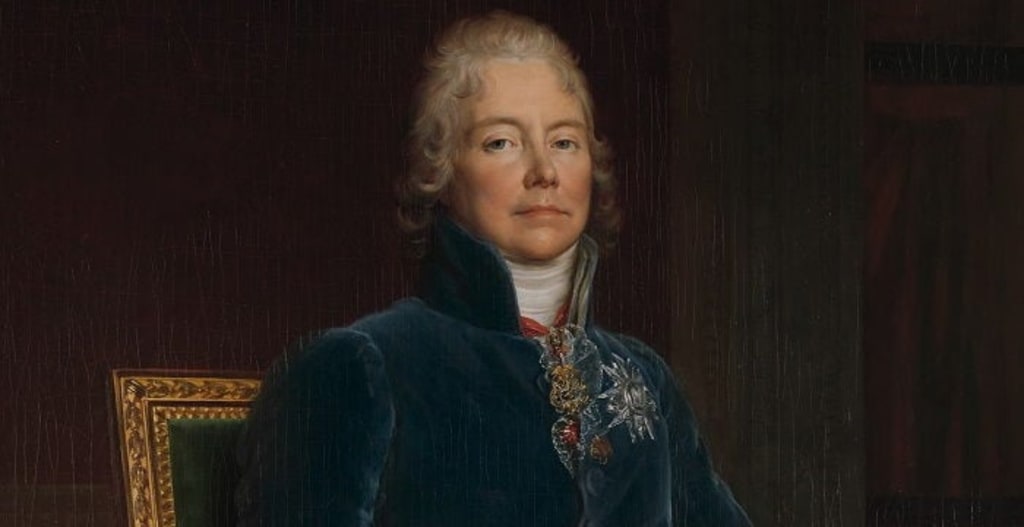Lessons From Talleyrand | A New Perspective (2024)
"I am more afraid of an army of 100 sheep led by a lion than an army of 100 lions led by a sheep." - Charles Maurice de Talleyrand - Périgord.

This is my first article of the year. After releasing Shotgun Insights, my latest book, I switched off the writing engine for a while before getting back to business. What is this present business about? Talleyrand, an iconic figure of French history who served as Napoleon's Foreign Minister and whose prowess in international affairs remains fascinating nearly 200 years after his death. The man was as powerful as he was controversial. He won big when others lost bigger, survived when rivals fell, betrayed as he saw fit and could have added a few chapters to Machiavelli's Prince regarding the art of power.
Was Napoleon, the 2023 movie directed and produced by Ridley Scott, the inspiration for this article? Absolutely not. In fact, I did not even watch the movie. The inspiration came from two very different sources: Talleyrand's biography written by French historian Emmanuel de Waresquiel and the 1992 movie called Le Souper. The latter, which is not well-known in English speaking countries, deserves to be highlighted. It is a masterpiece of political confrontation starring Claude Rich as Talleyrand and Claude Brasseur as Joseph Fouché, Napoleon's Minister of Police. Claude Rich's portrayal of Talleyrand is a masterclass and feels almost as if the great man is fully resurrected during the 90 minutes of Le Souper. The physical resemblance between Claude Rich and Talleyrand partly explains this whereas Claude Brasseur, whose portrayal of Joseph Fouché is also very impressive, has very different features from Fouché.
And so, what have these two sources of inspiration taught me about Talleyrand? What lessons did I deduce from the Prince of Benevento? You will find the most relevant three below.
1. Never get drunk on power regardless of how big or meaningless the power in question is.
Talleyrand was visibly an expert at separating the power which a man wielded from the man in question. For him, they were two separate things that just happened to be linked at a specific point of time. The man, be it Napoleon, a king or even a low-ranking citizen, was temporary whereas the power itself was not. The power would go to someone else, change, take a different name but remain fundamentally immortal. Talleyrand understood this with ice-cold realism. This was possibly his greatest asset when dealing with powerful men who seemingly could not see beyond the frontiers of their positions. Talleyrand did not need to fight for power the same way as Napoleon did. His aristocratic origins and education already guaranteed him a very high position in society. He was born in a family which understood power in ways that most people could not and was, somehow, immune to power's most detrimental effect: addiction. Talleyrand coolheadedness when others, frankly, lost their minds because of misplaced ambition enabled him to move past critical, and dangerous, historical moments with ease. Losing battles was acceptable to Talleyrand as long as the war was won. Key Lesson: Anyone desperately holding on to or expanding whatever power one has or was given regardless of the price paid is a lost cause. Refusing to acknowledge reality when the foundations of one's power are being eroded is akin to sitting on a ticking time bomb.
2. It is ok to let down people who cannot confront their mistakes and associated consequences.
Despite his reputation as a cynical opportunist, Talleyrand genuinely sought the best outcomes for France. There came a point when after Napoleon's many battles and subsequent victories Talleyrand rightfully believed that peace should prevail over war. Unfortunately, Napoleon was obsessed with conquest and his own position as French Emperor. He failed to understand the wisdom of preserving gains and avoiding unnecessary confrontations. Retreat was simply not an option. Had he listened to Talleyrand, Napoleon would have thought twice before launching a military campaign in Russia which proved to be the start of his downfall. This campaign was a reckless spending of France's military resources and left the country in a weakened position. Napoleon failed to lift his thinking beyond military considerations and this eventually cost him everything. To this day, Napoleon's invasion of Russia is considered as one of the most devastating military endeavours. The strategies and tactics which worked in previous wars were useless in Russia. Key Lesson: It is tempting to want to rescue people who suffer from their mistakes but this is only applicable when the people in question work to avoid committing the same mistakes several times over and are actively learning their lessons. If they cannot do that, leave.
3. Keeping consistently high standards pays great dividends.
Talleyrand was very proud of his aristocratic origins. This would be frowned upon nowadays but back then living up to the standards of one's high rank was a big deal. It is still a big deal despite often needless debates and general obsession with political correctness. As far as Talleyrand was concerned, his standards had an artistic quality when it came to using them to get what he wanted in the treacherous arenas within which he operated. Besides his impeccable manners and unbeatable "savoir vivre", Talleyrand had a knack for understanding the power of great gastronomy. He hired Carême, the greatest French chef of the 19th century, to produce meals for the most powerful rulers of Europe. This collaboration became legendary and greatly helped Talleyrand extend his influence. Key Lesson: It is all good to have high standards but never letting them slip is the real deal. This can, in many ways, be viewed as the most critical feature of those who win over the long-term.
Conclusion: Those who are remembered for generations after their deaths are among the privileged few. Talleyrand did more than that: he became immortal by changing the course of history. I will leave you to decide whether things would have been better had he not intervened or if Napoleon had won at the Battle of Waterloo.
Good luck,
Ashley Boolell
Check out my latest book here: Shotgun Insights.







Comments
There are no comments for this story
Be the first to respond and start the conversation.